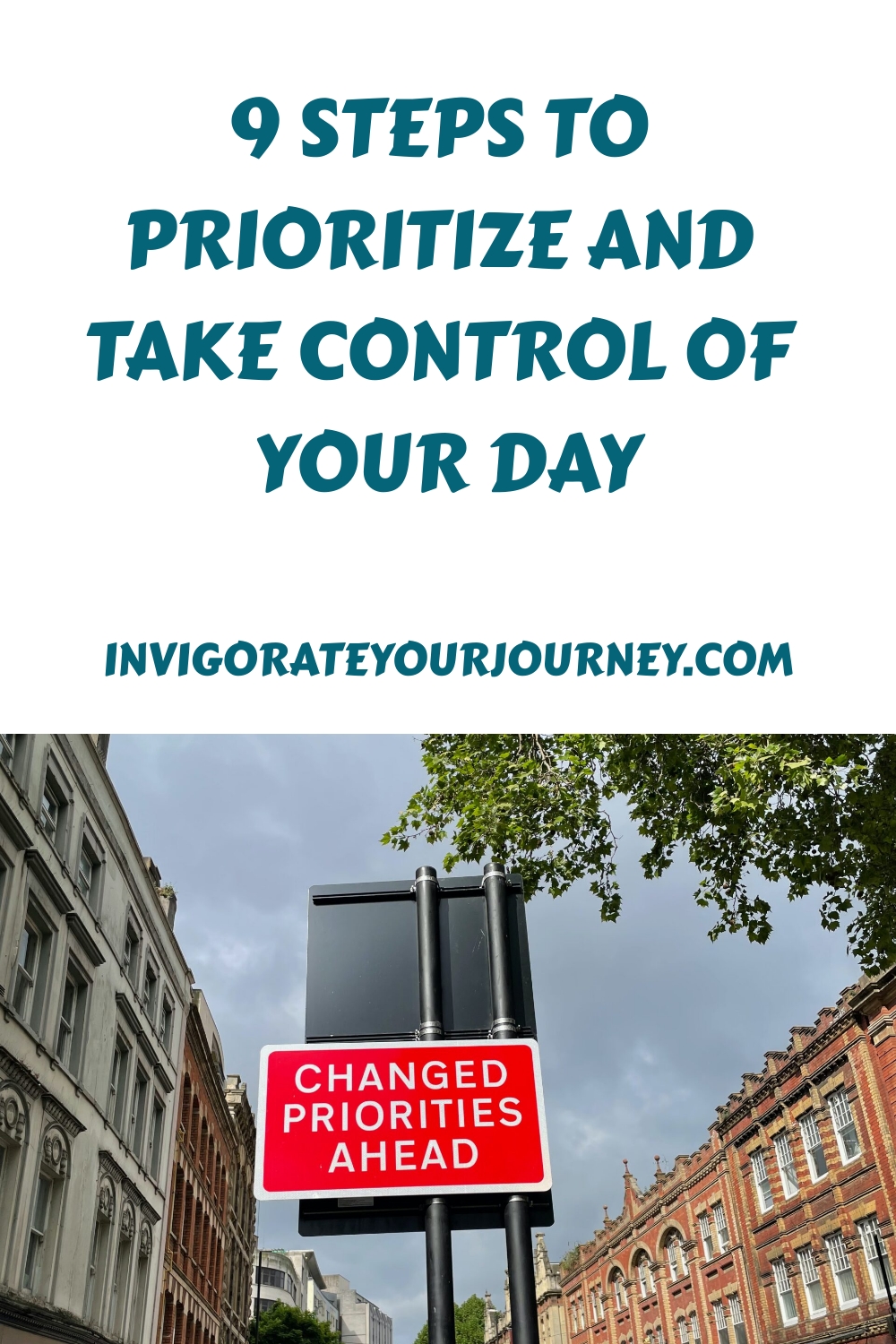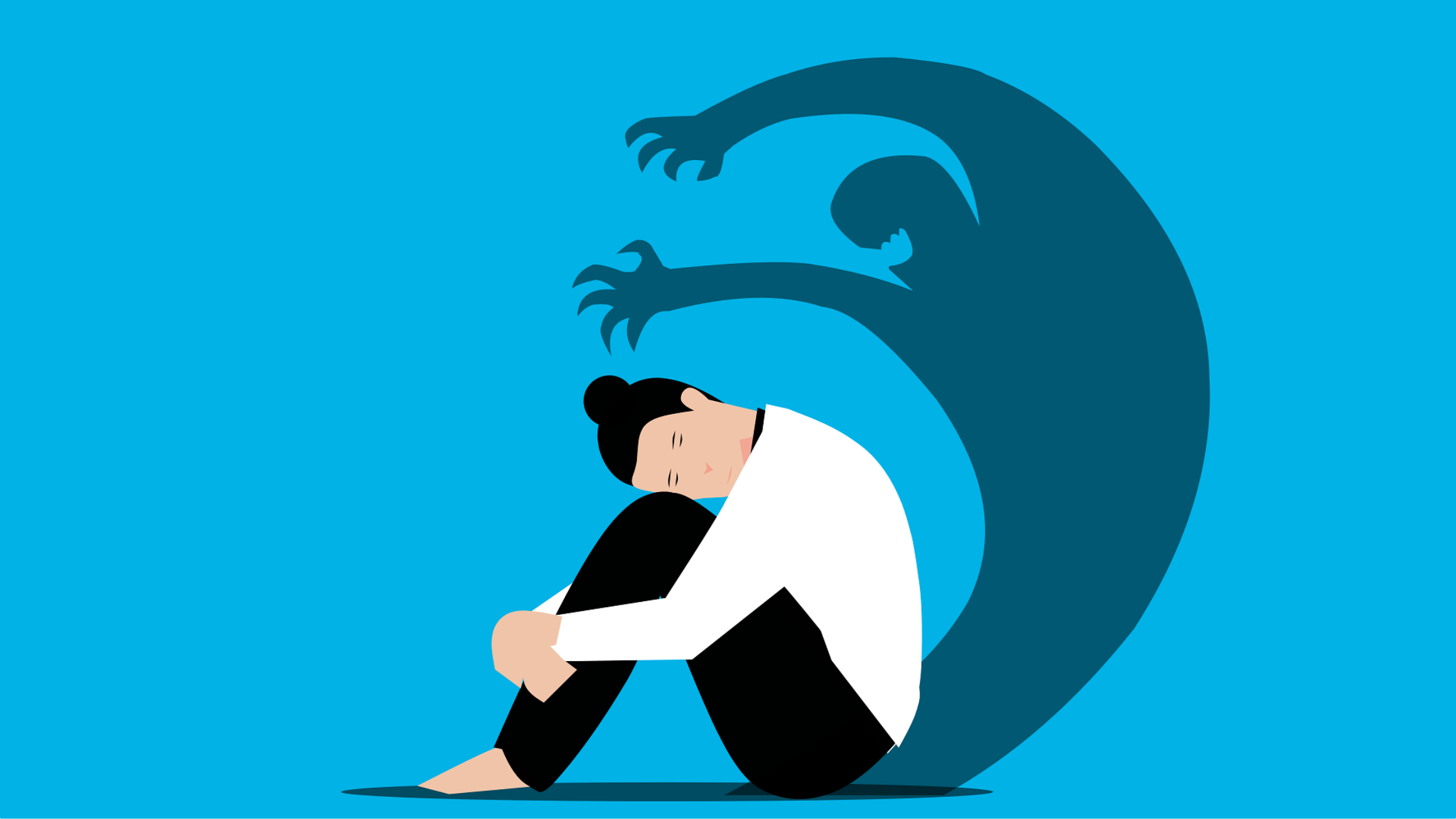We’re flying through our routines, grimacing through joint pain, drinking caffeine to fight off relentless fatigue and other complications accompanying autoimmune diseases.
Time is the only irreplaceable commodity, yet so many of us spend it racing through our daily routines without giving it much thought.
While here at Invigorate, we give you the steps, tools, and resources to empower your health journey while navigating autoimmune disease challenges; you may be thinking…
How the heck am I supposed to make these changes when it takes every ounce of my being just to get through the day?
We hear you. Hang with us…
We have a finite number of hours in a day – 24 hours: eight for sleep, four for eating (including prep and dishes), two for essential self-care, like showering and laundry, and work for eight or so hours…give or take time on each side, we’re left with a few precious hours to spend with family and friends.
The good news is that you can take steps to get some stuff off your plate and prioritize to maximize those hours.
While it takes more initial effort and persistence to change your habits, the payoff will mean more energy and stamina to get more out of those hours – improving your quality time with family and friends.
9 Steps to Take Charge of Your Day
1. Track your steps.
Before cutting out the energy drainers and time suckers, we need to know how we spend our time. We’re generally not great at doing this, especially in our culture of multitasking, distractions, and various vices.
Being specific about each habit you have throughout the day will help you understand how these habits stack up and affect your energy.
Use a journal, an app, or pen and paper to record every task and every step you take throughout the day. Don’t worry; you won’t have to do it for long – two weeks is great, but even a few days of tracking can provide some insight.

2. Group your to-dos into categories.
- Self-Maintenance: This category encompasses tasks related to taking care of yourself physically, mentally, and emotionally. It may include self-care routines (which can be as simple as showering and brushing your teeth in the morning), personal development, and relaxation.
- Family: This category focuses on tasks and responsibilities related to your immediate family members, such as spending quality time with loved ones, caring for their needs, and supporting their growth.
- Exercise: Physical activity is essential for maintaining good health and energy levels. Include tasks related to exercise or any physical activities you engage in to improve your well-being.
- Work/Commute: This category revolves around tasks related to your job or profession. It includes activities such as work projects, meetings, commuting, and professional development.
- Social Life: Allocate a category for tasks that involve socializing and spending time with friends or participating in community events.
- Household: This category encompasses tasks related to managing your living space, such as cleaning, organizing, cooking, grocery shopping, and home maintenance.
As you group your to-dos into categories, pay attention to overlapping tasks. For example, you might eat breakfast on your way to work, combining the self-maintenance and work/commute categories. Similarly, folding laundry while talking with a friend on the phone can fall under both the household and social life categories.

Identifying overlapping tasks can be advantageous as it allows you to maximize your time and accomplish multiple things simultaneously. However, be careful not to overload yourself with too many multitasking activities, as this can lead to feeling overwhelmed and not fully present in any of the tasks.
By grouping your to-dos into categories, you gain insights into where your time and energy are predominantly allocated. This awareness can help you assess if your current time allocation aligns with your priorities and make adjustments if necessary. It also allows you to see if any category consistently takes up more time or energy than desired, helping you identify areas where you may need to reprioritize or seek support.
Remember, these categories are not set in stone; you can customize them to fit your unique circumstances and responsibilities. The goal is to clearly understand how you spend your time and energy and make intentional choices that align with your values and well-being.
3. Identify necessary tasks and energy producers.
Our energy is significantly influenced by the types of activities we do. Some activities uplift us. We feel lighter and more energized. Conversely, other activities or tasks drain our energy, leaving us feeling heavy and depleted.
It’s important to consider how each task affects our energy so we can organize our day to prioritize our values, support our preferences, and propel us through the less energizing tasks.
Take note of how each task affects your energy, no matter how slight the change may be. Did the action give you a lift in energy, even if it was small? Or did it drain your energy? Some tasks may have a neutral effect.
By being mindful of these energy shifts, you can begin to identify patterns and make informed decisions about which tasks are necessary and which ones you can potentially eliminate.

This process is highly individual and unique to your own experiences and needs. What energizes one person may not have the same effect on another. Therefore, listening to your body, trusting your instincts, and making choices that support your overall health and happiness are essential.
4. Cut out tasks that drain your energy.
Tiredness and fatigue can be all too familiar for those living with autoimmune diseases. That’s why taking control of our energy and time is crucial. We can do this by pinpointing the tasks that drain us and exploring options to eliminate them. While it may not be easy initially, the rewards will be well worth it.
It’s time to take a closer look at how we spend our precious energy. Start by assessing your daily activities. Consider which tasks leave you feeling exhausted or depleted. Is it spending hours on social media? Or perhaps saying yes to every request, even when it stretches you thin? Take note of these energy-draining culprits.

Next, it’s time to prioritize. Determine which tasks are genuinely essential and align with your goals and values. These are the tasks that deserve your energy and attention. Giving yourself permission to let go of the non-essential tasks can be liberating. Remember, this is about preserving your energy for what matters most to you.
As you strive to cut out tasks that drain your energy, being gentle with yourself is crucial. Progress may not always be linear, and that’s okay. Focus on taking small steps and celebrating every win, no matter how insignificant.
In the challenging journey of autoimmune diseases, conserving our energy is a powerful tool. We empower ourselves to focus on what truly matters by eliminating tasks that drain us. So, let us take charge of our energy and create space for the activities that invigorate and inspire us.

5. Set it and forget it. Automate anything you can.
In today’s fast-paced, technology-driven world, automation is paramount. It’s time to take advantage of the wonders of technology and automate those repetitive tasks that drain our energy and consume our precious time.
Imagine never having to scramble to put dinner together or wasting time standing in line at the pharmacy for prescription refills. With Invig Resource: Misfits Market, you can automate your grocery or meal delivery, ensuring that nourishing food arrives at your doorstep without lifting a finger. And why not let a trusty robot vacuum take care of never-ending cleaning tasks?
By automating these daily tasks, we can free up our time and conserve our energy for the things that truly matter. Just think of the stress that will melt away and the extra energy you’ll have to devote to self-care, hobbies, or creating meaningful moments with loved ones.

6. Delegate tasks to others.
Asking for help can be challenging, we know. But let us assure you, my dear friend, that learning to delegate can be a game-changer in reducing stress and conserving energy. Take a moment to identify tasks that can be delegated to others.

It could be asking a coworker for assistance on a project or assigning household chores to family members. And don’t forget about the power of community support.
Invig Resource: Give InKind is an excellent care coordination tool to get support with whatever you need. Let us embrace the power of coordination and delegation. Doing so allows us to focus our energy on what truly matters!
7. Outsource whatever you can.
Outsourcing can be a game-changer when it comes to managing your time and energy. While it may not always be feasible to outsource every task, it is worth considering those tasks that drain your energy or add unnecessary stress to your life. Outsourcing tasks can help reduce your workload, free up valuable time, and allow you to focus on the things that matter most to you.
Consider outsourcing household chores such as laundry, cleaning, or yard maintenance. These tasks often require physical effort and can be time-consuming, especially for individuals with autoimmune diseases or chronic illnesses. By hiring someone to take care of these tasks, you can conserve your energy and allocate it to activities that bring you joy and fulfillment.

Outsourcing can extend beyond household chores as well. You can outsource tasks like grocery shopping, meal preparation, or prescription pickups. These errands can take up a significant amount of time and energy, and by delegating them to someone else, you can save both.
Outsourcing doesn’t have to be expensive or involve hiring professional services. Get creative and seek help from neighbors, friends, or even local community organizations. For example, maybe a neighbor’s child could take out your trash or mow your yard for a small fee.
Additionally, resources or services may be available in your community specifically designed to support individuals with chronic illnesses or disabilities.
When deciding whether to outsource a task, it can be helpful to calculate the cost-benefit. Assess the advantages of outsourcing, such as reduced stress, saved time, and conserved energy, against the expenses involved. Evaluate whether the potential benefits outweigh the cost, both financially and emotionally.
Outsourcing is not a sign of weakness or inability to do things independently. It’s a strategic decision to prioritize your well-being. Then, you can create space for activities that bring you joy, fulfillment, and better overall health.
8. You do what you schedule. Plan out your day.
Now that you have narrowed your list to the necessary to-dos and activities that fuel your energy, it’s time to plan your day. The phrase “you do what you schedule” is incredibly accurate.
By planning what you must accomplish each day, you can note the essential tasks and allocate the necessary time to them. Organizing your day in this way can help you prevent overcommitment, conserve energy, and reduce stress.

One of the biggest hurdles in planning your day is being realistic about what you can get done in a day. It’s essential to be mindful of your energy levels and adjust your plans accordingly. Your priorities might even change throughout the day, depending on how you’re feeling.
To ensure you don’t overcommit yourself, it can be helpful to physically limit the space you use to manage your to-do list. While digital task managers like Microsoft’s To-Do list are convenient, they provide endless space for adding tasks. Consider using a paper calendar, so you have a limited space to fill. This can help you prioritize and focus on what must be done.
9. Reprioritize
Life is constantly throwing new things at us, and we often have to adjust our plans on the fly. When a new task comes up, take a moment to consider whether it truly belongs on your list.
Evaluate if it aligns with your priorities and belongs to your to-do list. If it does, make a conscious effort to determine where it falls within your priorities. Look at your categories and identify which one the task belongs to. Then, take a long look to see if it can be automated, delegated, or outsourced.

Tip: Do a Double-Take. When a new task comes up, ensure it belongs on your list. Does the request align with your priorities and belong to your To-Do list?
Regularly checking in and reassessing your list is crucial. Priorities can evolve, and what seemed important a week ago might not hold the same weight now. By reevaluating and reprioritizing, you can ensure that your energy and time are aligned with your most important goals and responsibilities.

Productivity Tip: Take breaks!
Remember to give yourself breaks throughout the day. Taking quality mental breaks is essential for maintaining productivity and avoiding burnout. Research has shown that our brains have limited focus time, and pushing ourselves to concentrate excessively can result in impulsive behavior, creative blocks, and poor collaboration.
According to Srini Pillay, M.D., an executive coach and CEO of NeuroBusiness Group, taking “unfocused time” has numerous benefits. It allows our brain to wander, sparking creative thinking and enhancing problem-solving skills.
So, make sure to schedule regular breaks during your day and engage in activities that allow your mind to rest and recharge. Avoid getting distracted by mindless social media scrolling and instead engage in activities that truly help you relax and rejuvenate.
Crafting a Personalized System for Optimal Time and Energy Management
By following these nine steps, you can create a personalized system that works for you and helps you use your time and energy best. Prioritizing is crucial for individuals with autoimmune diseases or chronic illnesses, as it allows you to conserve energy, reduce stress, and focus on the things that matter most to you.
All of this is easy in theory. It’s sticking with it and giving your To-Do list the thought and effort needed to spend your valuable time on the things most important to you.
Remember, you are not alone in this journey. We are standing beside you, ready to lend an empathetic ear, share helpful tools and resources to empower your journey and provide a supportive community to lean on. Together, we can navigate the challenging terrain of autoimmune diseases and reclaim our lives.

 Karin W
Karin W 






